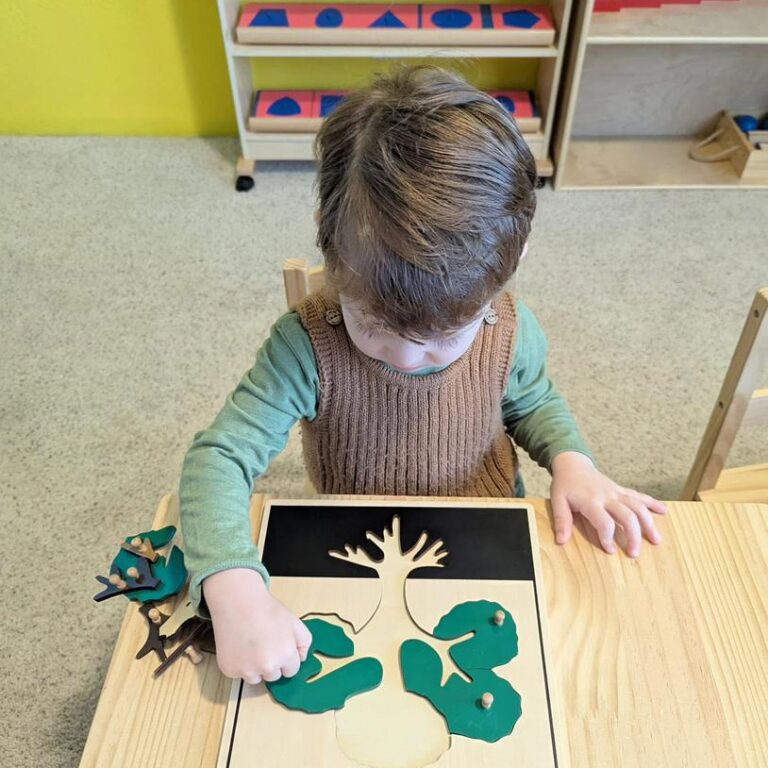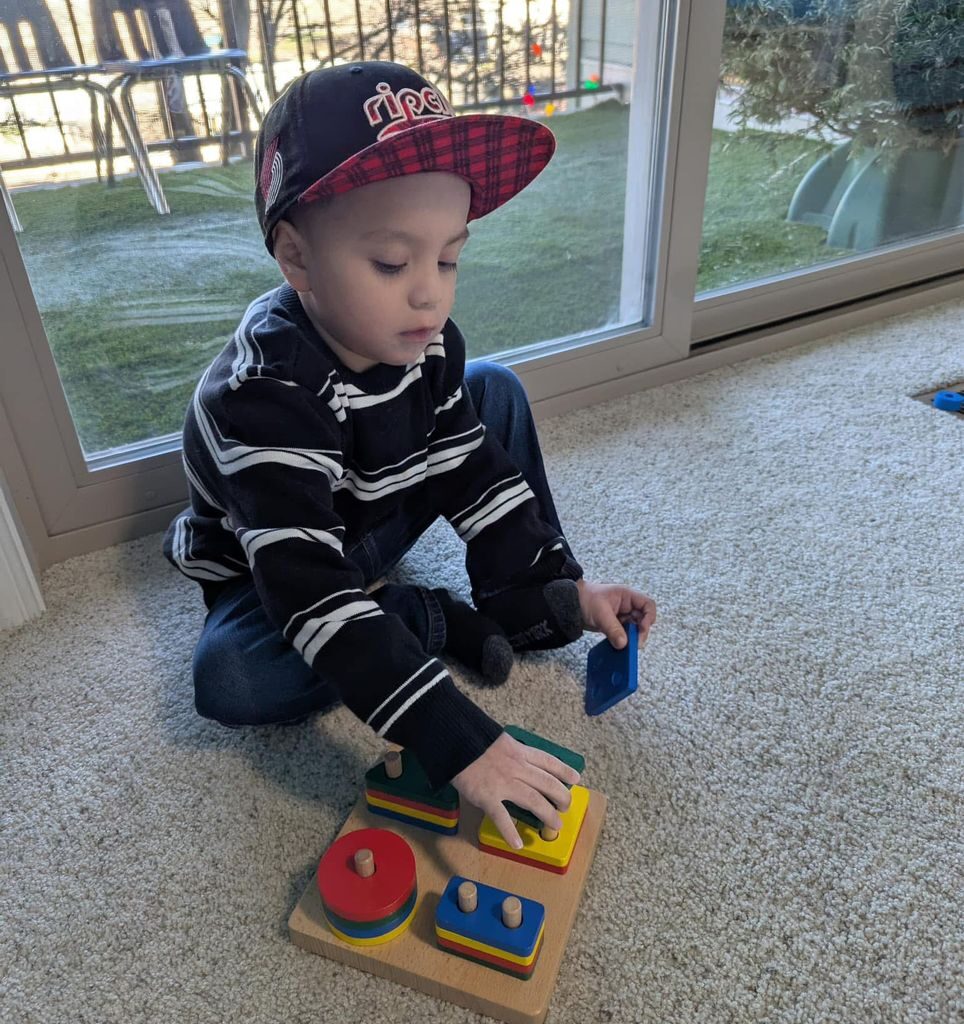Montessori
Materials
The hand is the instrument of intelligence. The child needs to manipulate objects and to gain experience by touching and handling.
-Dr Maria Montessori
What are
Montessori Materials
Montessori materials are ingenious hands-on learning tools that are designed to stimulate children’s minds, encourage exploration, and inspire independent learning. They are enticing, simple to use, and intentionally support children’s learning and development. Together, the Montessori materials come together to form the Montessori Curriculum.
Montessori materials teach only one skill at a time to provide children with the opportunity to master key learning outcomes through repetition and practice. Doctor Montessori stated:
“Nothing goes into the mind that does not first go through the hands.”
Children are first introduced to the Montessori materials by a trained educator, who will present a Key Lesson, and then invite the child to work with the material independently. When they have finished working with the
activity, the children return each material to its allocated place in the prepared environment.
The Montessori materials are presented to the child in sequence, from easiest to hardest, and in accordance with their developmental needs and interests. This clear structure provides a logical and ordered progression for learning, which in turn, promotes the gradual layering of knowledge.
What’s Unique
About Montessori Materials
Hands-on learning tools that teach one skill at a time Designed with multiple learning styles in mind
Build knowledge and skills through repetition and practice Made of natural materials and real-life objects
Develop independence, fine motor skills, and concentration Learning outcomes discovered through problem-solving Designed for children to teach themselves
Simplify abstract concepts
How Do
Montessori Materials Work
Hands-On Learning
Montessori materials are hands-on learning tools that guide children to discover key learning outcomes through repetition and practice. Each material breaks down one key concept into simple steps that


Control of Error
Montessori materials are designed with an inbuilt ‘control of error’ that is self-evident. This quality allows children to see their own mistakes and discover learning outcomes independently through repetition and practice. For example, the knobbed cylinder won’t fit in the incorrect hole, water may spill on the table, or there will be too many/too few objects at the end of a counting activity.


Progression Order
In the Montessori classroom, the Montessori materials are arranged within their curriculum area and are displayed from left to right in progression order, from easiest to hardest. This logical sequence provides children with a clear pathway to learning as they progress through the Montessori Curriculum.


Fine Motor Skills
Montessori materials encourage purposeful movement and exploration. This manipulative quality makes them highly beneficial at developing fine motor skills. These skills are essential components of a balanced approach to early childhood education as they encourage independence, concentration, and prepare children for real life.


Order
The prepared environment is a calm and structured learning space where children know what to expect. There are dedicated shelves of materials for each curriculum area, designated space to work at a table or
on the floor, an area for meal times, and the ellipse where the children gather together. There is an organic flow for movement, learning, and exploration. Child-Sized: Doctor Montessori observed that children experience frustration in an adult-sized world. This is why she designed child-sized furniture, accessible low open shelves, and learning materials that easily fit in a child’s hand. Everything in the prepared environment is purposefully designed to support children’s independence and self-mastery.


One Skill at a Time
Montessori materials teach only one skill or concept at a time. This allows children to deeply engage with the material as they discover, practice, and master the learning outcome at their own pace. Each
Material has been developed in the context of all the other materials to progressively build children’s knowledge and skills within each subject area.


Auto-Instructional
Montessori materials are designed to be used without the help of an adult. This allows children to discover and master the learning outcomes of each material through repetition and practice independently.


